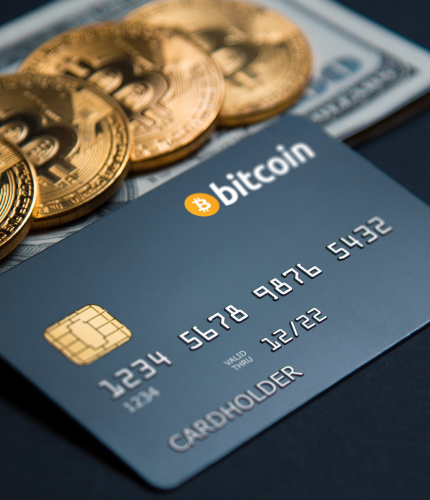Table of Content
Mainstream media is full of crypto scams and how regulators want to deal with them. However, no mainstream media outlet covers the risks of banks.
The precariousness of the financial system
Thanks to plenty of media coverage the vast majority of citizens probably have a vague idea that crypto is bad and it is something to stay well clear of. However, those same citizens are probably blissfully unaware of the risks they take by keeping ‘money’ in the bank.
With very negligible mainstream coverage of their economies by mainstream media, people in countries such as the U.S. and the United Kingdom are very possibly completely unaware of just how precarious their economies are. In fact, this is the case across the whole globe.
How many people would know that some banks have already fallen, and that many of the rest have been kept alive by injections of cash from the Federal Reserve?
We are told that if your bank fails in the U.S. then not to worry because the FDIC will insure your funds up to $250,000, and in the UK, the Financial Services Compensation Scheme will insure you up to £85,000 ($103,000).
However, not many banks would need to fail before these agencies run out of money to cover all the customers of these banks. Also, if you think about it – who do these agencies bank with?
Who would know, if they don’t delve into certain social media platforms and find the experts that would educate them, that inflation is a stealth tax, and has been stealing their wealth over many years? Or that at only 2%, inflation will rob each generation of around half of all their wealth over their lifetimes?
The evils of CBDCs
Have people ever wondered how on earth their bank can wield so much power over them? Or why banks appear to be able to just de-bank customers if they don’t like their opinions or political persuasion?
What percentage of a country’s population knows anything about central bank digital currencies? With the Bank of International Settlements (BIS) (also known as the central bank of central banks) encouraging all the central banks of the world to develop and implement them quickly, why wouldn’t education programs on the subject be broadcast to the citizenry in order to inform them and gauge their response?
Would people understand that no matter how many promises were initially made by government and central banks, the ability to program these digital currencies in order to manipulate how citizens spend their money would always be there?
Bank ‘bail ins’
Banks have run their course. The Dodd Frank Act was passed into law in 2010, for all intents and purposes to protect consumers after the excesses of banks following the Great Financial Crisis of 2008/9.
However, this Act stipulates that should any bank become insolvent, instead of the government (the taxpayer) bailing them out, the bank would be able to ‘bail in’ all of its customers and use their money to pay its creditors.
Crypto – problematic, but finding solutions
Crypto is problematic. It sprung up as a protest against the banks and how they have ravaged economies in the name of profit. It is very much in the testing phase, and given that regulators have not provided clarity on how crypto fits into existing securities laws, many bad actors have taken advantage and have proliferated the sector.
However, there is no doubt that crypto has provided extremely innovative technology and ideas, especially for finance. It is going through early-stage teething problems, and should someday succeed in providing an alternative to the cumbersome and unwieldy banks and financial institutions that exist today.
Educate yourself on Bitcoin
Apart from that, there is a crypto asset called Bitcoin. This asset sits atop the most powerful and decentralised network the world has ever seen. It is completely out of the reach of governments and their agencies to manipulate, and can be sent to anyone, anywhere in the world, without governments or banks saying nay.
Educating oneself on Bitcoin is very likely the beginning of entering that rabbit hole that leads to an understanding of our current monetary system, and the house of cards that it is all built on. Be sure to spend the time. Your future may depend on it.
Disclaimer: This article is provided for informational purposes only. It is not offered or intended to be used as legal, tax, investment, financial, or other advice.
Credit: Source link






















 Bitcoin
Bitcoin  Ethereum
Ethereum  Tether
Tether  XRP
XRP  Solana
Solana  Dogecoin
Dogecoin  USDC
USDC  Lido Staked Ether
Lido Staked Ether  Cardano
Cardano  TRON
TRON  Avalanche
Avalanche  Chainlink
Chainlink  Wrapped stETH
Wrapped stETH  Toncoin
Toncoin  Shiba Inu
Shiba Inu  Wrapped Bitcoin
Wrapped Bitcoin  Sui
Sui  Stellar
Stellar  Polkadot
Polkadot  Hedera
Hedera  Hyperliquid
Hyperliquid  WETH
WETH  Bitcoin Cash
Bitcoin Cash  LEO Token
LEO Token  Uniswap
Uniswap  Litecoin
Litecoin  Pepe
Pepe  Wrapped eETH
Wrapped eETH  NEAR Protocol
NEAR Protocol  Ethena USDe
Ethena USDe  Aptos
Aptos  USDS
USDS  Internet Computer
Internet Computer  Aave
Aave  Cronos
Cronos  POL (ex-MATIC)
POL (ex-MATIC)  Mantle
Mantle  Ethereum Classic
Ethereum Classic  Render
Render  Monero
Monero  WhiteBIT Coin
WhiteBIT Coin  MANTRA
MANTRA  Dai
Dai  Bittensor
Bittensor  Artificial Superintelligence Alliance
Artificial Superintelligence Alliance  Arbitrum
Arbitrum  Ethena
Ethena 
